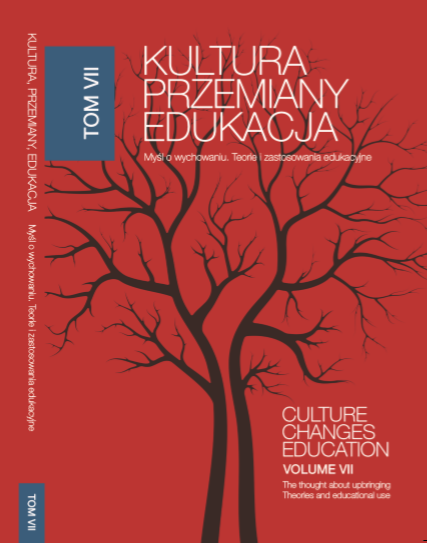School culture and school effectiveness: cooperation with environment as a leading way of learning
DOI:
https://doi.org/10.15584/kpe.2019.7.7Keywords:
school organization, national guidelines, educative legislation, macro and micro-, -political levels, teacher training.Abstract
In any academic institution two action levels with regards to school organization can be found. On the one hand, the macro-political level basically concerned with educative legislation and how these rule educative institutions. On the other hand, the micro-political level concerning school priorities. Along this book chapter we will provide a research based on how the macro and the micro political levels should handle together. Hence, we will basically provide an updated theoretical framework focusing on the most relevant trends. Moreover, we will keep on with a deep analysis of how stakeholders and active agents promote and develop curricular prescriptions. Finally, we will analyze and discuss how far the implementation of educative principles contributes to enhance the students’ interests and assumes their needs for a better teaching-learning process.
Downloads
References
Avramidis E. & Norwich B., Teacher’s Attitudes toward Integration/Inclusion. A Review of the Literature, “European Journal of Special Needs Education” 2000, 2(17), 129–148.
Cabero J. & Córdoba M., Educación inclusiva: la inclusión digital, “Revista de Educación Inclusiva” 2009, 2(1), 61–77.
Hinojo F.J., Aznar I., Cáceres M.P. & Romero J.M., Opinión de futuros equipos docentes de educación primaria sobre la implementación del mobile learning en el aula, “Revista Electrónica Educare” 2019, 23(3), 1–17.
López M., Ética y escuela pública: ¿Es posible una escuela sin exclusiones? In Ipland et al., La atención a la diversidad: diferentes miradas, Huelva, Hergué, 13–53, 2008.
López R., Bases conceptuales de la inclusión educativa, Avances en supervisión educativa: Revista de la Asociación de Inspectores de Educación de España, 14, 2011.
Soler J.R., La participación social en la construcción de la democracia, reto consustancial a la formación a lo largo de la vida, Madrid, Tornapunta 2009.
Soler R. & Han T., The Language of Pedagogy Today: What are the New Teaching Challenges? New York, Nova 2018.
Downloads
Published
How to Cite
Issue
Section
License
Copyright (c) 2019 KULTURA – PRZEMIANY – EDUKACJA

This work is licensed under a Creative Commons Attribution-NoDerivatives 4.0 International License.


